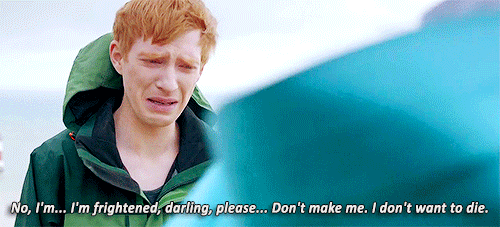Eternal Sunshine on a Spotless Mind (2004)
Eloisa to
Abelard, by Alexander Pope:
How happy is
the blameless Vestal’s lot!
The world
forgetting, by the world forgot;
Eternal
sunshine of the spotless mind!
Each pray’r
accepted, and each wish resign’d.
That is what stands out when it is quoted in the film, and
puts the entire event into what Charlie Kaufman was proving. This idea of
erasing memory that is in the movie lets one have that eternal sunshine, or
bliss without dwelling on what has happened in the past. It is reiterated throughout the movie that the
characters linger on the past and say that, “Nice is good and why didn’t I just
stick with nice?” We slowly see the relationship between Joel (Jim Carrey) and
Clementine (Kate Winslet) and we figure out that they started out with great
intentions but were slowly losing the romance they had. Clementine goes to a
company to have the memory of Joel erased and this takes Joel a little while to
figure out. He then decides to erase his own memory of her when he finds the
company and what they did for her. He gets the memories erased but hates saying
good-bye to the good ones of Clementine. So this movie asks us if we really
have these bad experiences, do we really want to try to forget, the good, and
the bad? It may be in people’s interest to forget those experiences but they
all gather to make us into that pure being, and we experience that Pure Becoming that Richard Taylor writes
about. The thing is that all these memories of Clementine that Joel is erasing
still lingers in the recesses of his conscious.
Even without them, he has still aged and existed to that point to where
even though he has had those memories erased he is still in that present point
of time, thinking, and being. And that is how the movie ends and begins; both
of these characters have memories of each other erased by a business while
their relationship is going on. Both characters have the intuition to go to a
certain point where they meet again and pick up almost exactly where they had
left off. The whole experience acted as a reset in the relationship and
emotions. They both resume life as they
had before they met one another but in the end, they reset back to where they
were before they went to erase each other’s minds, starting the relationship
again. This is all a bit crazy to write about but that is what this movie
alludes to, that with or without certain memories of events, we are still at
that point psychologically in our pure becoming with or without the noticeable physiological
change that we associate with aging. Taylor writes on the subject, “’pure becoming’
to designate the passage through time to which all things seem to be subjected,
merely by virtue of their being in time…. Becoming older simply in the sense of
acquiring a greater age, whether the that increase in age is attended by any
other changes or not”.
Here is further definition on Pure Becoming from Taylor:





